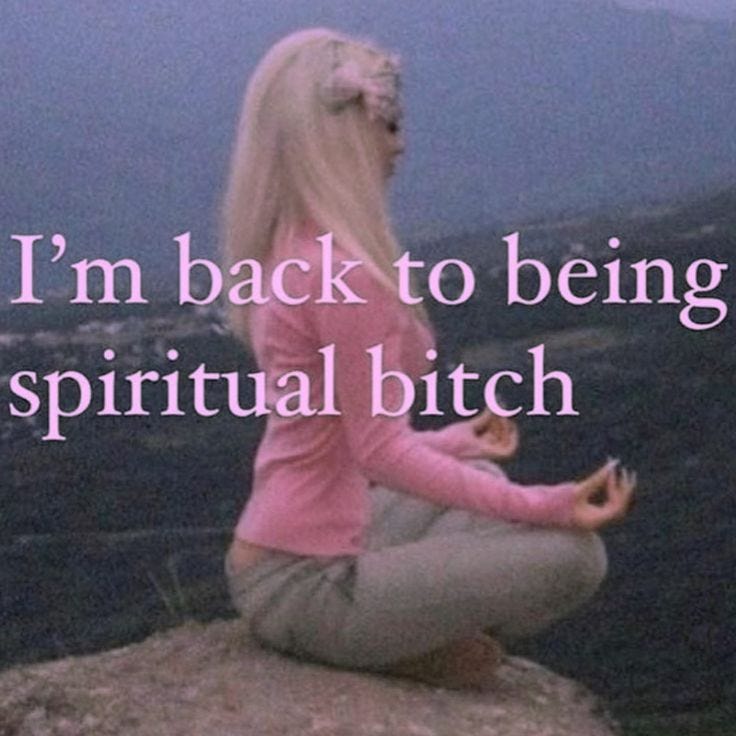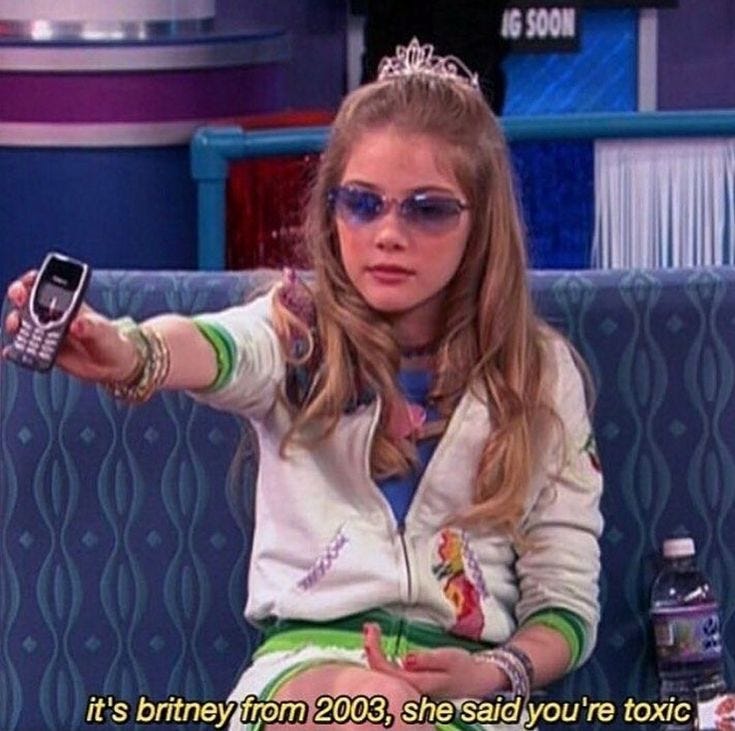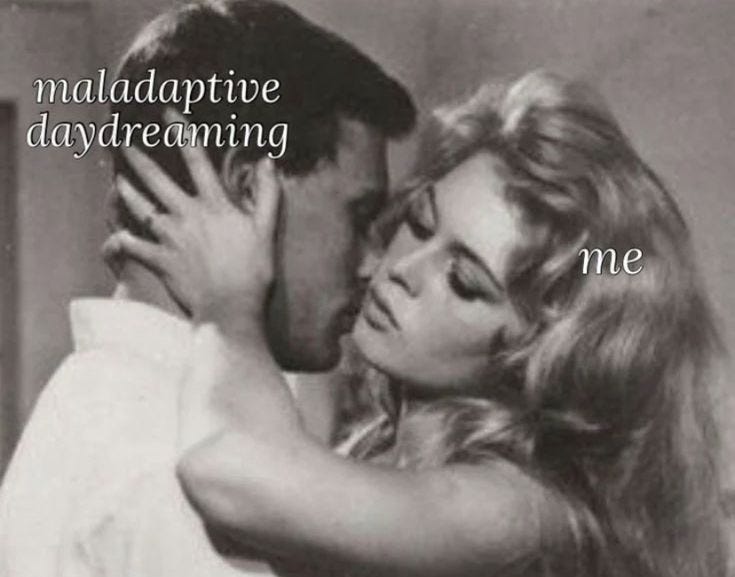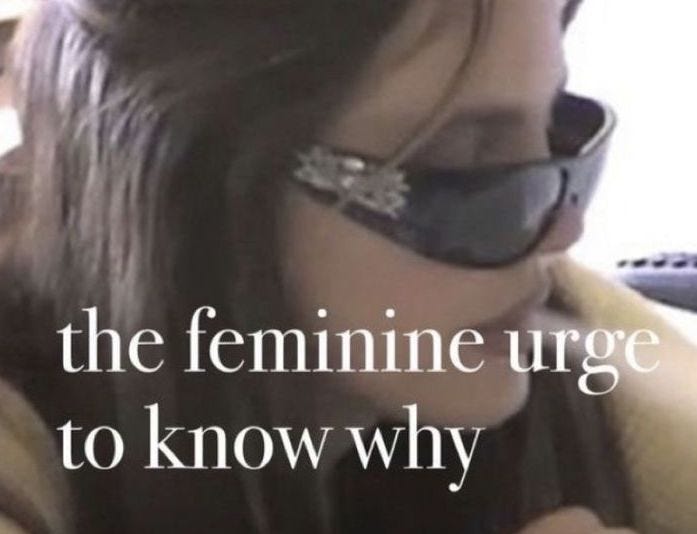The internet has many unspoken rules, many laws which we adhere to each and every day without much thought. Perhaps the most sinister law, underlying almost every aspect of modern-day media is: to create or be consumed.
Your attention is valuable, more valuable than it has ever been before, and if you don’t spend your time creating content, then you’ll spend the majority of your time scrolling, consumed by feeds and memes and uneducated podcast bros.
In a landscape designed to keep us on our screens and outside our minds, I’ve found quiet moments to have become lacklustre, yet precious. The scarcity of silence is considered uncommon among the unceasing hum of the digital world. Bystanders look at you strangely if you’re seen on an elevator without your AirPods in, clicking away at your phone. Since this recent discovery, I’ve been searching for silence on the black market: turning off my phone, leaving my headphones at home, travelling to and from locations with nothing more than a book. It seems weird to be so unplugged, to welcome nothingness instead of shunning it.
The underlying paradox of our lives is growing to be quite hilarious. We’ve become addicted to the internet.
The overconsumption of social media is leading to what is known as “technostress”, a phenomenon that results in distraction and potentially spiritual exhaustion, as we struggle to balance our online presence with our real-world responsibilities and experiences. (Brooks, Longstreet, & Califf, 2017). When we finally have a moment to ourselves we instinctively reach for our phones. A meal alone has turned into a YouTube watch party (it’s been labelled sad to eat alone in silence). We crave easy-to-digest comedy skits and GRWMs to drown out even a fraction of boredom. This cycle of excessive use and subsequent overload only further establishes the paradoxical nature of social media's impact on our lives. What originally began as a pursuit of connection has led us down a road of disconnection and mental fatigue (Cao & Sun, 2018).
We’ve created a culture where we believe that every piece of news, every trend, and every tweet holds equal value.
However, this compulsive use of social media and consumption of media leaves us feeling fatigued—we’re tiring ourselves out. Not to mention that social media fatigue is closely linked to emotional stress and social anxiety in young people. Excessive engagement with social platforms can lead to a state of weariness and mental exhaustion (Pang, 2021).
In our relentless pursuit to stay informed, and remain connected, we've unwittingly surrendered pieces of ourselves. In our culture, pulsing to the rhythm of FOMO and ignorance, we’ve become fearful of unplugging ourselves. We insist on being aware of every global tremor, every societal whisper. We don’t want to risk being branded as out of touch, ignorant, or worse - unwoke.
Will we even know when technology has gotten to the point of doing more harm than good? How will we know when it’s passed the point of heroism and become a force wielded by evil? We’re stuck in an endless tornado of information and as a result, our passions have become trapped inside us, begging for release. With sudden, unlimited access to everything, anything, all of the time we’ve made it harder for ourselves to find time for our interests, let alone explore them. We’re slowly becoming incapable of being fully immersed in the moment.
Which is the whole point, might I remind you.
Social media platforms actively contribute to a form of affective capitalism, which goes almost unrecognized in our lives. It’s characterized by our constant pursuit of clicks, likes, and shares. This environment fosters both affective and cognitive distractions, contributing to a sense of spiritual emptiness as we become more focused on virtual validation than real-world interactions and experiences (Paasonen, 2016).
With the virtual world at our fingertips, why seek out the real world?
Our insatiable hunger for content, our constant craving for stimulation, is a byproduct of our fear of two things, a) being alone with our thoughts and b) feeling bored. It’s a cycle dependent on us choosing to shy away from the uncomfortable options. It’s human nature to take the easy way out—it makes sense why you choose to scroll for 3 hours a day instead of taking a second to self-reflect or start a puzzle you know will take you 3 days to finish.
I want to point out that I’m not preaching from some throne high above, I waste hours a day doom-scrolling endless feeds, feeling both unsatisfied and disinterested for the majority of my experience. Yet I can’t stop myself.
My personal experiences with social media only mirror a larger societal trend, where the pervasive influence of technology shapes not just individual lives but the fabric of our collective existence. Technology, which once promised to be our saviour, to lighten our load and provide us with access to unlimited information, has instead bestowed upon us a new burden—spiritual exhaustion; a weariness that seeps into the very core of our being.
Social media, a byproduct of the tech boom, although never promised us some sort of refuge, it did have promises of its own. It was created for sharing news, information, and images, serving as a main source of entertainment and socialization for society. (Sihombing, 2017). Some platforms were made with the idea of being able to mobilize people to participate in social movements and improve social capital (Hwang & Kim, 2015).
Social media was envisioned as a way to facilitate the dissemination and sharing of information over the internet, impacting social life, social norms, and our sense of community (Robbins & Singer, 2014).
All great things - right?
Although social media was initially designed for the masses, and developed for individual use, it didn’t stay that way, did it? Corporations, realised, rather quickly, that the [social media] features of information sharing and instant responsiveness were beneficial for corporate communications as well (Kumar & Singh, 2014).
Some of the major players like Facebook, Twitter, and Instagram have since become valuable sources of information for brands and companies. They facilitate the development of advertising campaigns, the targeting of relevant profiles for recruiting purposes (Suciu et al., 2017), the establishment of relationships with customers, and access to valuable information for product improvement and development (Lin, Yan, Chen, & Luo, 2017).
We’re diverting from the point a bit, but I think it’s important to know just how much corporations are gaining from social media addictions. Our attention is what they want, and it’s not our fault we fall so easily into their traps.
However, it’s important to note that high addiction to social media is associated with lower levels of mindfulness and emotion-focused coping strategies. This lack of mindfulness, in turn, leads to higher emotional exhaustion, indicating a direct impact on the individual's spiritual and emotional well-being (Sriwilai & Charoensukmongkol, 2016).
In this video from The Book Leo, which talks about the truth behind our “declining attention spans”, she also explores her relationship with social media, specifically TikTok. What I find most interesting (other than this idea of our attention spans “shrinking” is just some debunked clickbait bullshit) is that she noticed after deleting the app that she would mostly reach for her phone to scroll when she experienced feelings of stress, anxiety, and difficulty.
She realised she had started using TikTok as a means to cope with some of the more difficult parts of her life. That’s right: We’ve started using social media as a coping mechanism.
This is a great watch if you’re looking to learn a bit more about this idea of our “declining attention spans”.
Those of us who suffer from social anxiety, and maybe lower self-esteem, tend to turn to social media as a compensatory behaviour to cope with our fear of negative evaluation, indicating that social media is acting as a maladaptive coping mechanism (Zsido et al., 2020).
Alright, let’s not forget nuance, we know nothing exists in purely black or white.
I’ve considered the detrimental impact of our digital engagement, but it's crucial to also acknowledge the undeniable benefits that social media has brought into our lives, fostering global connections and community building. Studies have found that engaging with coping stories shared on platforms like Twitter has been shown to decrease stress and depression, as well as improve expressive writing, diversity, and interactivity.
Social media can offer a therapeutic outlet for sharing and understanding mental health experiences (Yuan et al., 2023), and it provides many people with a sense of community they might have never gotten the chance to experience. However, it remains true that our addiction to distracting ourselves with social media is leading to mass spiritual exhaustion. Our overconsumption of media is leaving us fatigued and harming our creativity levels, implying that constant consumption leads to a depleted state of mental resources (Luqman, Talwar, Masood, & Dhir, 2021).
Reflecting on these broader social dynamics, I find it essential to turn inward and examine my interactions with social media. This introspection reveals a nuanced relationship, where my personal experiences with technology echo wider societal patterns.
Look, I’m not a traditionalist. I don’t think we should go back to a time without technology or social media. I enjoy social media, I benefit from it, I engage with it, and I think it does have a unique ability to connect us. However, I do believe we need to learn to guard ourselves better.
The intentions of these platforms have shifted towards prioritising corporations over people. They’re making money off our loss of interest in hobbies, real-life connections, and lack of creativity. Recognizing these challenges, it becomes imperative to explore how we can navigate this complex digital landscape, seeking the balance between connectivity and personal well-being.
It’s our job to seek out what truly brings us joy. In pursuing our passions perhaps we can find our way back to a semblance of balance, to a state of inner peace amidst the ever-present chaos of the internet.
It's challenging. Changing entrenched habits, especially in this hyper-connected world, is a monumental task. It’s not easy to resist the lure of the screen. But, I think if we want to maintain any resemblance of happiness for ourselves we need to get real about the intentions of our social media use.
If you use it as a coping mechanism instead of as a means of inspiration or connectivity, will that leave you feeling any better than before you logged on?
I’ll be real: I’m not deleting my social media apps, or going on some crazy dopamine detox, I’m just trying to get real with myself and I think you should too. Let us welcome back silence, let us welcome back difficulty and boredom.
We must try our best to use social media and technology in ways that inspire us instead of as a constant distraction. It can connect us to our communities, bring us inspiration, and allow us to do some good. We don’t need to be distracted all of the time, running away from boredom.
Genius happens when you’re bored shitless.
Thanks for reading my ramble!
I encourage you to share this with your close friends if you feel like it’s the kind of thing they’d be into.
If you want to read more of my writing or just want to see what’s going on in my life, you can find me on Instagram, Twitter, or TikTok.











